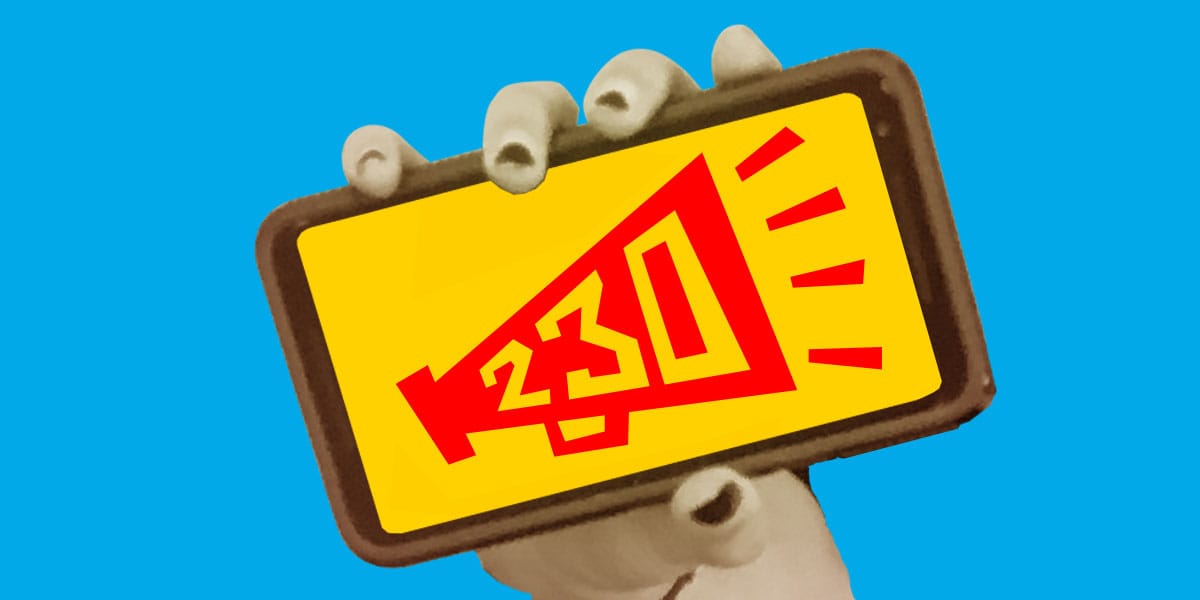FCC Details Section 230 Authority Argument, White House Regulates AI, What Was Quibi Again?
In a blog post, the Federal Communications Commission General Counsel Thomas Johnson on Wednesday outlined why he felt that agency has authority to interpret and regulate Section 230 of the Communications Decency Acr. Johnson argued that Congress’ decision to placed Section 230 within the Communicat
Liana Sowa

In a blog post, the Federal Communications Commission General Counsel Thomas Johnson on Wednesday outlined why he felt that agency has authority to interpret and regulate Section 230 of the Communications Decency Acr.
Johnson argued that Congress’ decision to placed Section 230 within the Communications Act made it clear that the FCC had rulemaking authority over the provision. Two significant U.S. Supreme Court cases, AT&T Corp. v. Iowa Utilities Bd. and City of Arlington v. FCC, , he said.
He laid out the history of the Communications Act, which established the FCC as a separate federal agency charged with overseeing international and interstate communications. Four years later, the agency got the power to prescribe rules and regulations necessary to carry out the act.
Some have objected to FCC rulemaking authority because Congress never intended for the FCC to administer or interpret Section 230. This “inquiry focuses on whether agencies deserve deference at all where there is no clear evidence that Congress intended the agency, rather than courts, to interpret an ambiguous statute.”
The “Supreme Court’s conclusion that Congress adopted the entire 1996 Act against the backdrop of the FCC’s Section 201 rulemaking power while leaving that power in place” resolved this argument, he said.
White House to release AI regulations
The Trump administration plans to release regulations governing artificial intelligence, senior technology official Michael Kratsios said Wednesday.
This regulatory guidance stems from a draft made in January of 10 principles for crafting AI regulation, including cost and risk assessments of the technology, accord to the Wall Street Journal.
Last year President Trump launched the American AI initiative through an executive order, which encouraged agencies to give priority to AI in their research and development efforts, as well as to open their data to AI experts and promote AI training.
These regulations are part of a growing trend in government, as the National Institute of Standards and Technology, a scientific body under the Department of Commerce, and the Department of Defense already have their own guidelines for AI.
The administration has preferred a “light touch” approach to AI regulation, believing that will encourage innovation. While other European nations have employed stricter regulations on AI, innovation has been a priority in part because of the U.S.’s race with China, he said.
The administration has also sought international cooperation on development and oversight of AI. The administration has signed several international agreements about governing principles of AI, including last month with the UK and last year with the OECD.
Streaming app from Jeffrey Katzenberg and Meg Whitman didn’t catch on
Quibi, the streaming video app from American film producer Jeffrey Katzenberg and former eBay head Meg Whitman, is shutting down after six months of service without finding a foothold in the market, according to AdWeek.
After notifying investors on Wall Street, Katzenberg and Whitman issued a public letter expressing their profound disappointment for the shutdown of the company, lamenting that their “failure was not for lack of trying; we’ve considered and exhausted every option available to us.”
The app, which launched on April 6, aimed to provide programming to be viewed in the “in-between” moments while getting coffee or commuting to work. In the wake of the pandemic, Whitman said she hoped people would use the app in between Zoom calls or homeschooling kids. Unfortunately, this did not happen.
Quibi had 10 launch partners which bought out $150 million in advertising inventory. The advertisers said the experienced “significant underdeliveries.”
The companies had other issues, neglecting to launch the app with a connected tv casting option, as well as the ability share content on social media or even screenshot it.
The company originally projected amassing 7.5 million subscribers by years end. According to Sensor Tower analytics, it is estimated that the app has been downloaded about 9.6 million times through the App Store and Google Play, and generated an estimated $7.7 million on subscriptions.
While the app and the website remain functional on computer and mobile devices, the app’s Twitter account has not promoted any new programming since Tuesday.









Member discussion